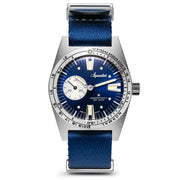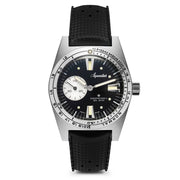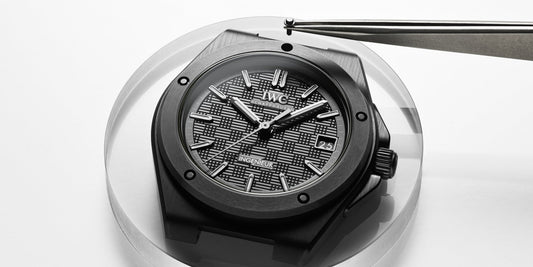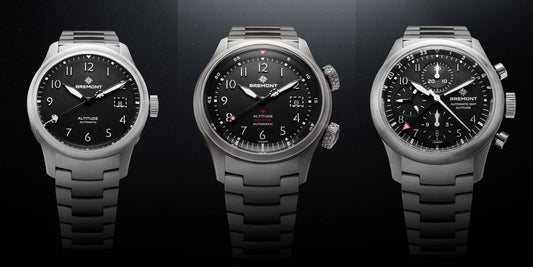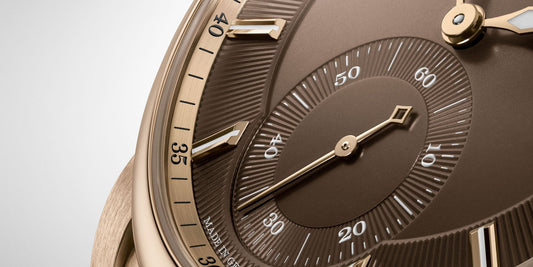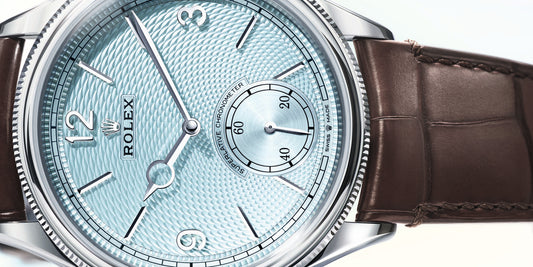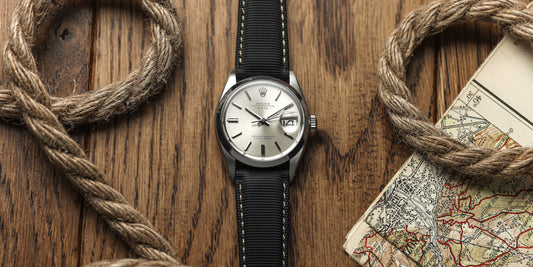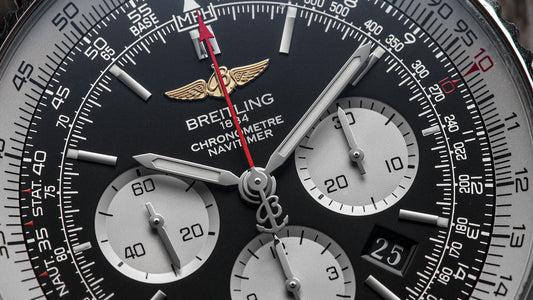I’ve come across so many “trends” in the watch world. Some have quickly come and gone, others have stuck around for years at time. Of them all though, none has got me quite as excited as the rise in smaller sized watches.
This is not to say big, bold and oversized watches have had their moment in the spotlight and need to clear out. There will always be a place for them, but compact timepieces are due a resurgence and I know I’m not the only one that agrees. There are men that are willing to wear smaller watches and women looking to go a little larger, and it seems that the 36mm mark is the perfect meeting ground for both genders.
 Nodus Unity Pink - Credit Nodus
Nodus Unity Pink - Credit Nodus
Back in the day…
If you’ve ever inherited a vintage watch, or you’ve seen photos of wristwatches worn a century ago, you’ll probably know that case sizes in the past were significantly smaller to what we’re used to today. We’re talking even smaller than 36mm. Many men during the early 1900’s to the 1970’s chose cases around 30 to 34mm and anything 36mm or above was scorned at for being unnecessarily large.
While things have certainly changed, the merits of a small watch are still apparent. They’re effortless to wear, suiting any wrist size, extremely comfortable and slip neatly under the cuff of a shirt. They’re also typically less expensive. I know they’re not for everyone, and that’s OK, but even those of you adamant that a 36mm case is too small should definitely try some on for size.
 Christopher Ward The Twelve (36) - Credit WatchGecko
Christopher Ward The Twelve (36) - Credit WatchGecko
Where did all the small watches go?
So after half a century of small watches being the go-to, where did all the big boys come from? It seems like during the 1970’s and 80’s, there was a rise in demand for diving watches and chronographs, and with more complex complications and increased water resistant ratings came cases a few millimetres bigger than standard. It wasn’t long after that before luxury names like Rolex and Breitling began launching even bigger sports watches with cases measuring up to 42mm wide.
Since then, cases have slowly but surely grown and for a long time, anywhere between 40mm and 44mm seemed to be the sweet spot. Anything below that was typically marketed as a lady’s watch, and understandably, most men won’t think to consider timepieces under that genre – especially when the styles are separated so evidently on brand’s websites and in stores.
 Nodus Unity Blue - Credit Nodus
Nodus Unity Blue - Credit Nodus
- Regular price
- £68.00
- Regular price
-
- Sale price
- £68.00
- Unit price
- per
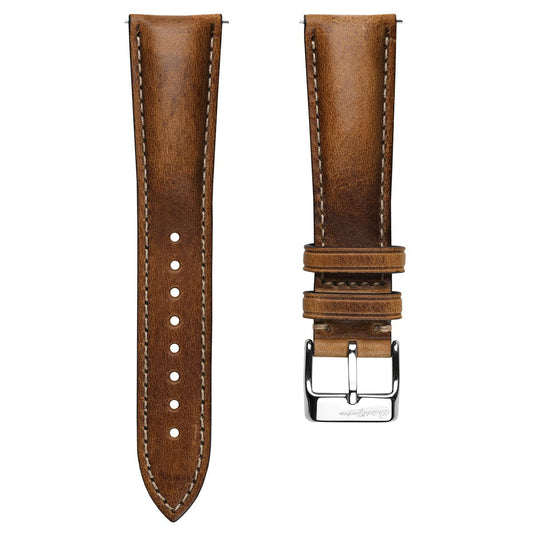
- Regular price
- £68.00
- Regular price
-
- Sale price
- £68.00
- Unit price
- per
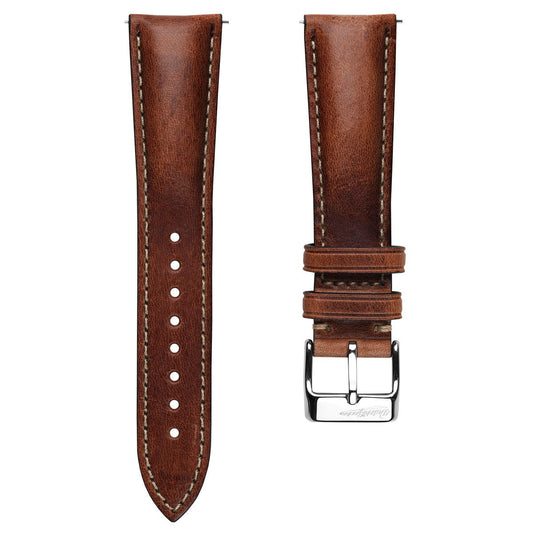
- Regular price
- £68.00
- Regular price
-
- Sale price
- £68.00
- Unit price
- per
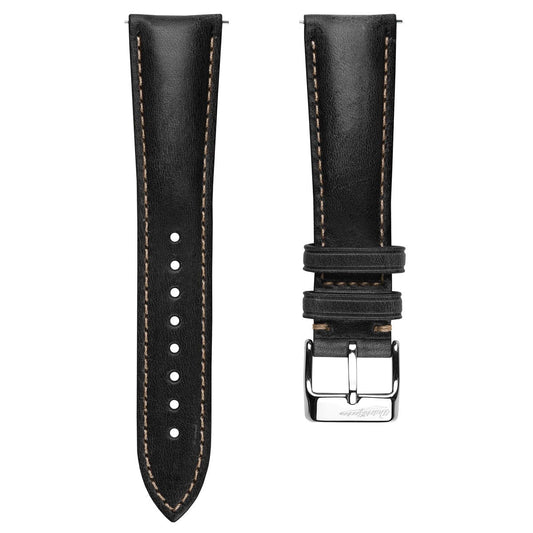
Times are changing…
More recently however, in the last two years or so, there has been a distinctive resurgence of smaller watches. This feels largely down to people’s confidence in watch wearing. People no longer feel the need to buy exclusively within their certain gender, but instead you have women reaching for larger men’s watches and men tempted by smaller sized “women’s” watches.
You also have some industry leaders no longer gendering their watches at all. Rolex for example were one of the first to quietly eliminate gender terms from their product descriptions and model names. In fact, if you head over to the Rolex website, you’ll notice there’s no gender filters anywhere, just the dimensions of the watch displayed clearly in the title. Zenith followed suit with this more recently.
Personally, as someone who isn’t afraid to experiment with watches of every size, I can really appreciate changes like this. It’s nice to know watch brands no longer feel gender explanation is necessary, and instead of rather associating a particular size with a gender, they are letting us watch lovers choose for ourselves. I have no doubt you’ll still have women shopping the 34mm and below mark more than men, and the same will be true for men and their 42mm and above watches, but at least the choice is there.
 Christopher Ward The Twelve (36) - Credit WatchGecko
Christopher Ward The Twelve (36) - Credit WatchGecko
36mm is the sweet spot
So after all of this, let’s come back to my original argument: 36mm is the perfect case size. Why? Because it’s a classic diameter historically, but it also neatly caters to every gender, personality, taste, wrist size and so on. I truly believe that a 36mm looks just as good on a slim wrist as it does a chunky one. They’re also naturally timeless in their aesthetic and extremely comfortable to wear. They’re not so small that they feel invisible, but they can effortlessly blend into those dressier occasions where needed.
Ultimately though, I truly believe the ideal size of a watch comes entirely down to you. Ignore all preconceptions you have on a particular case size and just try on the watches that look good. Who cares if it’s a few millimetres smaller or larger than normal, take a risk and go try it on. I think you’ll be pleasantly surprised.
 Christopher Ward The Twelve (36) - Credit WatchGecko
Christopher Ward The Twelve (36) - Credit WatchGecko
There are several 36mm watches out there already. You have luxury designs like the Tudor Black Bay 36 and the Rolex Explorer 36 as well as more affordable models like the Tissot Seastar 36mm and the Seiko 5 Sports Midfield. But I’m greedy, and I need more, so if any brands are out there listening – please may you deliver even more 36mm watches. Thanks.
I’d really love to know what you guys think. I know the answer to the perfect case size is different for everyone, so tell us in the comments below what your “sweet spot” case size is. Are you someone willing to downsize or upsize to 36mm or is that a no-go for you?


